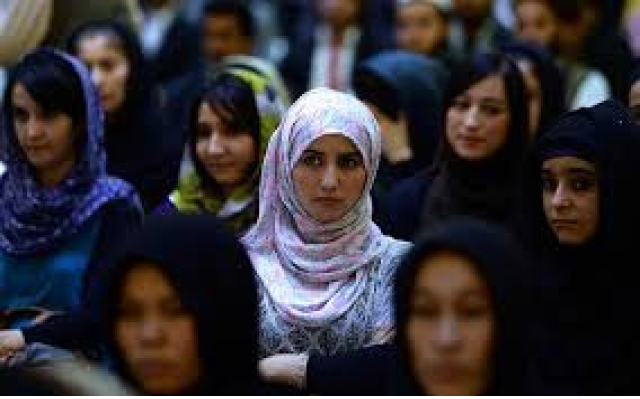KABUL - More than 800 incidents of violence against women took place during the first six months of the ongoing solar year, compared to 764 incidents during the same period last year.
Statistics with the Ministry of Women’s Affairs (MoWA) show incidents of violence against women increased this year mainly due to the presence of illegal armed groups, insecurity, corruption and failure to pass the law that prevents violation of women’s rights by parliament.
According to the statistics, 815 incidents of violence against the gender were registered during the first six months of the year compared to 764 incidents during the same period last year.
Last year’s crimes against the gender included 36 murders, 21 suicides, 32 sexual attacks, 300 cases of torture, 48 divorces, 41 forced marriages.
But this year 39 women were murdered, 22 committed suicide and 27 were sexual attacked, 390 tortured, 47 divorced and 36 forced into marriages.
The remaining cases include elopement, underage marriages, discrimination, dowry claims, alimony, denying education and inherence rights, kidnappings, physical torture, verbal torture, insult, and death threats.
MoWA says it has registered 2,880 incidents of violence so far this year across the country. The incidents include murders, beheadings, suicides, torture, self-emollition and others.
Aziza Adalatkhwa, head of the legal department at MoWA, said there were more incidents of violence than those registered with the ministry because most women did not report injustices happened to them.
She said incidents of violence had increased because women could not approach judicial organs to get their legal rights.
She cited ignorance among women as another factor contributing to increasing incidents of violence against the gender in society.
She said her ministry helped 19 women resolve differences with their families. Another 72 women were provided access to legal rights and 427 provided consultations on necessary issues.
Nelab, a resident of Qala-i-Zaman Khan, a mother of five children, said: “I married 15 years ago but still I face torture at in-laws home. My husband beat me regularly under different pretexts.”
She said her relatives had advised her to get divorce but she feared her children would become without father and she couldn’t take this step.
Nelab is an educated woman and she could get a job, but her husband does not allow her to find a job and earn money for her children.
The Taliban stoned to death a 19-year-old woman and whipped the unmarried man she eloped with in Awdak Ghaleem village on the outskirts of Firozkoh, the provincial capital of western Ghor province, on Oct. 25.
A short video clip of the stoning scene went viral on social media, but militants have so far said nothing about the incident.
Her family, including her parents, three sisters and a son, fled the village and took refuge at the governor’s house. “Taliban stoned my daughter very cruelly without any crime. Her innocent cries always add to my pains,” Hanifa, the mother, said.
Shedding tears as she frequently named Rukhshana and asked the president to take the perpetrators to justice and punish them.
A month back, gunmen abducted seven civilians, including four women and a child, from Jaghori district of southern Ghazni province.
The hostages were decapitated in Arghandab district on November 8 amid clashes between Daesh and Taliban militants.
Outraged by the beheadings, Kabul residents rallied from Kota Sangi area to the Presidential Palace. The slogan-chanting demonstrators, including civil society members, carried the victims’ bodies.
“Death to Pakistani spies and death to Taliban and Daesh,” the protestors shouted, asking the government to take stern action against the perpetrators. Some of them called for the resignation of the president and his CEO.
Rafiullah Baidar, Afghanistan Independent Human Rights Commission (AIHC) spokesman, said most of the registered cases of violence took place in major cities such as Kandahar, Kabul, Herat and others.
He added incidents occurring in far-flung areas were out of the reach of government and rights organizations.
He stressed the need for increased awareness about violent incidents and said cases relating to women rights should be referred to courts and be resolved in line with the laws.
Due to differences, the Afghan parliament is yet to approve the Elimination of Violence against Women Law known as EVA law, which was decreed into law through an Executive Order by the former President Hamid Karzai on July 20, 2009, while parliament was in recess. (Pajhwok)

